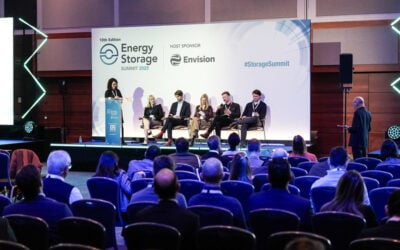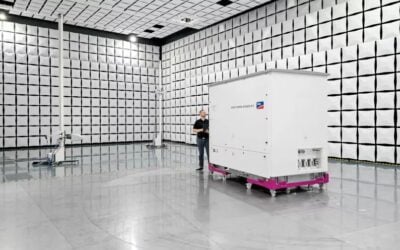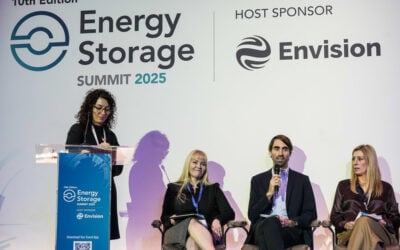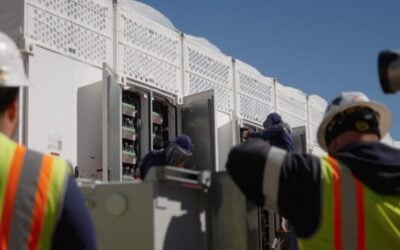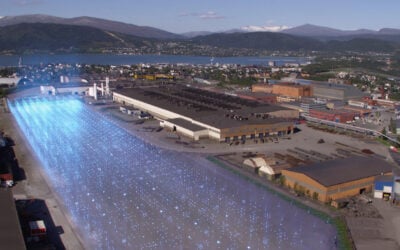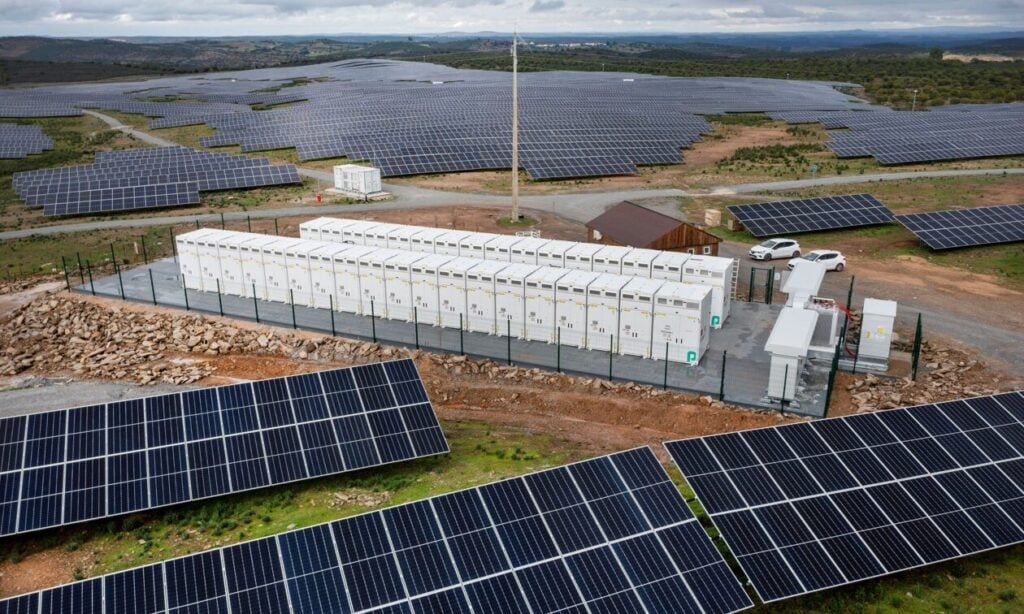
System integrator Powin has completed a 5MW/20MWh BESS project co-located with solar in Portugal for Galp, an oil, gas and renewables company.
The Alcoutim solar plant’s 4-hour battery energy storage system (BESS) will balance out intermittent renewable generation, Powin said, and enhance Alcoutim’s dispatchability.
Enjoy 12 months of exclusive analysis
- Regular insight and analysis of the industry’s biggest developments
- In-depth interviews with the industry’s leading figures
- Annual digital subscription to the PV Tech Power journal
- Discounts on Solar Media’s portfolio of events, in-person and virtual
Or continue reading this article for free
The project in Alcoutim in the southern coastal region of the Algarve is Galp’s first energy storage unit and Powin’s first BESS project in Europe to come online. The announcement said the solar plants in the Alcoutim region have a combined capacity of 144MW.
The Oregon, US-based system integrator provided its Centipede Stack750 grid-scale BESS solution while Hitachi Energy provided the power conversion system (PCS) equipment.
Powin sold Spain-based PCS company EKS Energy to Hitachi Energy last year, having acquired it just a year earlier, and Powin and Hitachi entered a strategic partnership with a view to developing PCS products for the energy storage market together. We interviewed the new head of EKS within Hitachi Energy in January this year (Premium access).
Powin announced the Alcoutim project in February 2024, having until then only deployed projects in the US, Asia, and Australia. Later that month it announced its first project in the UK, with BESS developer-operator Pulse Clean Energy.
More recently, the firm completed a 100MW/200MWh BESS in Texas, US, for Apex Clean Energy and partnered with developer UCB to deploy projects in Brazil.
Powin partners with Circulor on Battery Passports for BESS
In concurrent news, Powin has entered into a collaboration with supply chain traceability solutions firm Circulor to, in their words, ‘set a new standard for responsible sourcing in the BESS market’.
The partnership combines Circulor’s material traceability solution to track graphite, lithium, aluminum, steel and copper from source to lithium iron phosphate (LFP) battery along with their embedded carbon emissions.
The companies say this will provide ‘unparalleled visibility, proof of material provenance, and alignment with Europe’s Batteries Regulation and U.S. import and trade restrictions’.
Powin said its battery packs for European markets will come with a digital battery passport accessible through a QR code ahead of Europe’s Battery Passport deadline of February 2027.
“The energy transition requires not only advanced technologies but also a firm commitment to responsible sourcing,” said Mike Wietecki, SVP of regulatory affairs at Powin. “Partnering with Circulor enables us to deliver traceable, transparent energy storage solutions that align with global trade and sustainability standards.”
Powin claimed the transparency sets it apart from other integrators and power producers.

